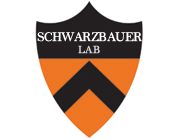Fibronectin fibril alignment is established upon initiation of extracellular matrix assembly
Type
The physical structure of the extracellular matrix (ECM) is tissue-specific and fundamental to normal tissue function. Proper alignment of ECM fibers is essential for the function of a variety of tissues. While matrix assembly in general has been intensively investigated, little is known about the mechanisms required for formation of aligned ECM fibrils. We investigated the initiation of fibronectin (FN) matrix assembly using fibroblasts that assemble parallel ECM fibrils and found that matrix assembly sites, where FN fibrillogenesis is initiated, were oriented in parallel at the cell poles. We show that these polarized matrix assembly sites progress into fibrillar adhesions and ultimately into aligned FN fibrils. Cells that assemble an unaligned, meshwork matrix formed matrix assembly sites around the cell periphery but the distribution of matrix assembly sites in these cells could be modulated through micropatterning or mechanical stretch. While an elongated cell shape corresponds with a polarized matrix assembly site distribution, these two features are not absolutely linked since we discovered that transforming growth factor beta (TGF-β1) enhances matrix assembly site polarity and assembly of aligned fibrils independently of cell elongation. We conclude the ultimate orientation of FN fibrils is determined by the alignment and distribution of matrix assembly sites which form during the initial stages of cell-FN interactions.

